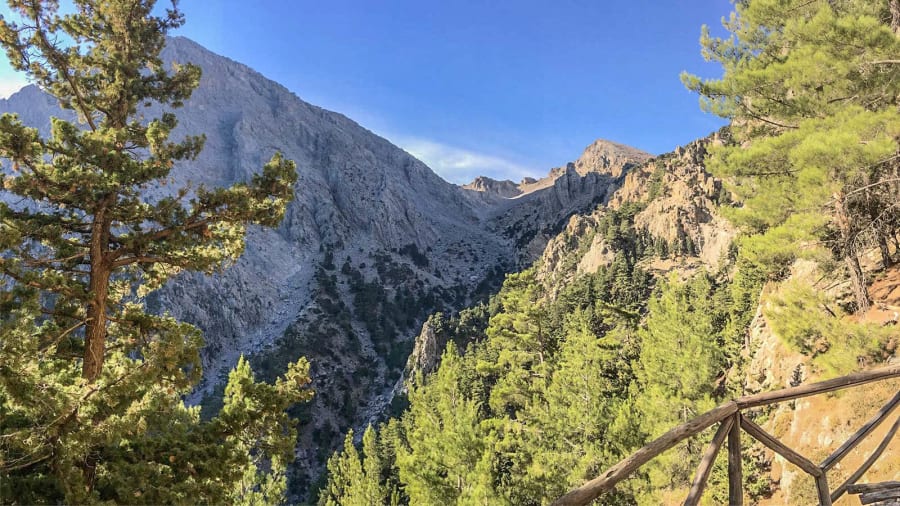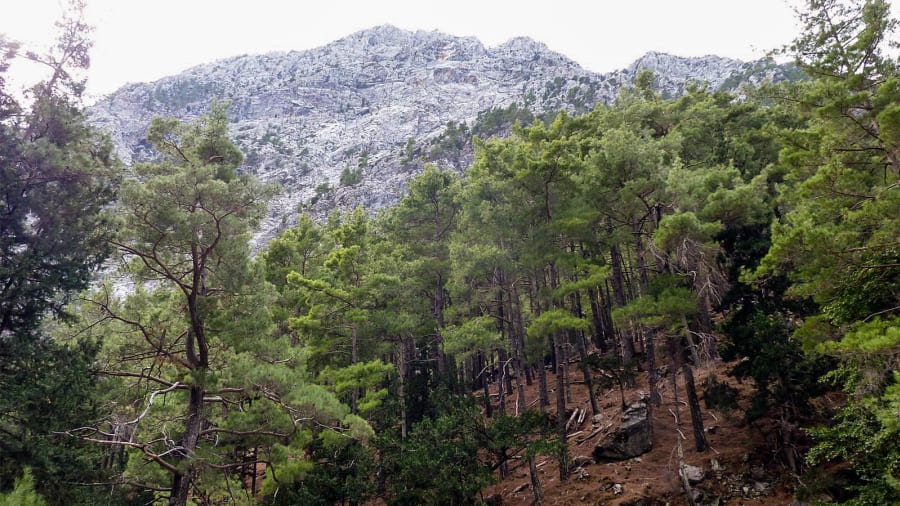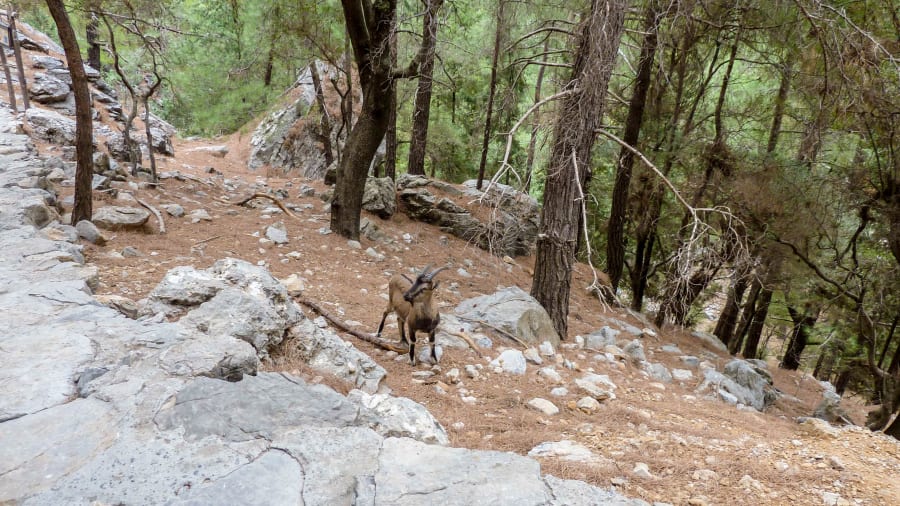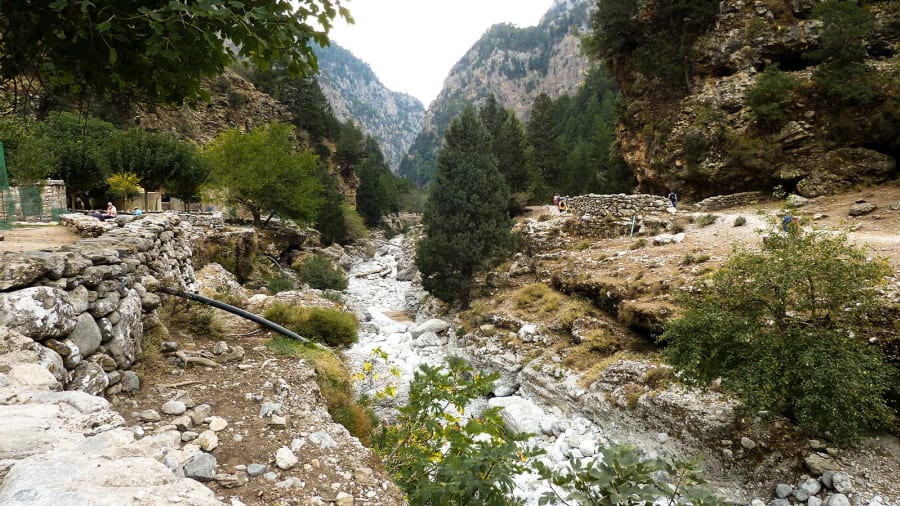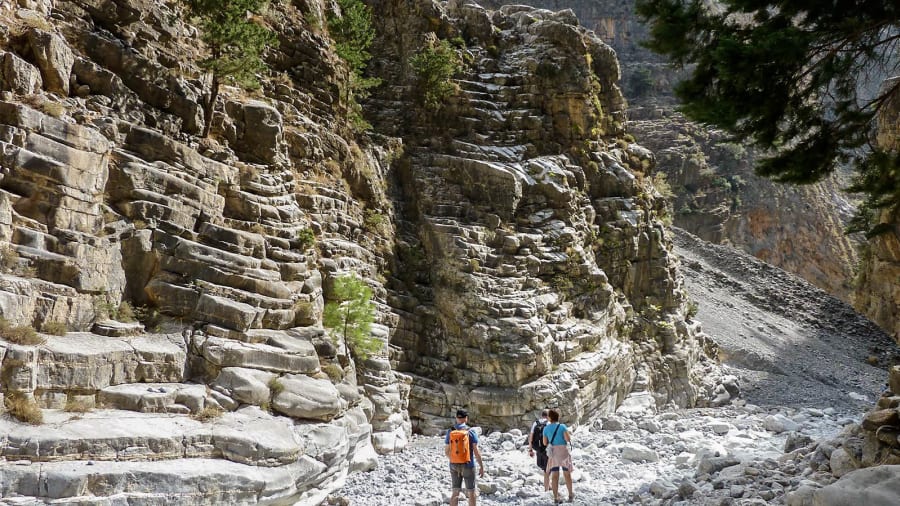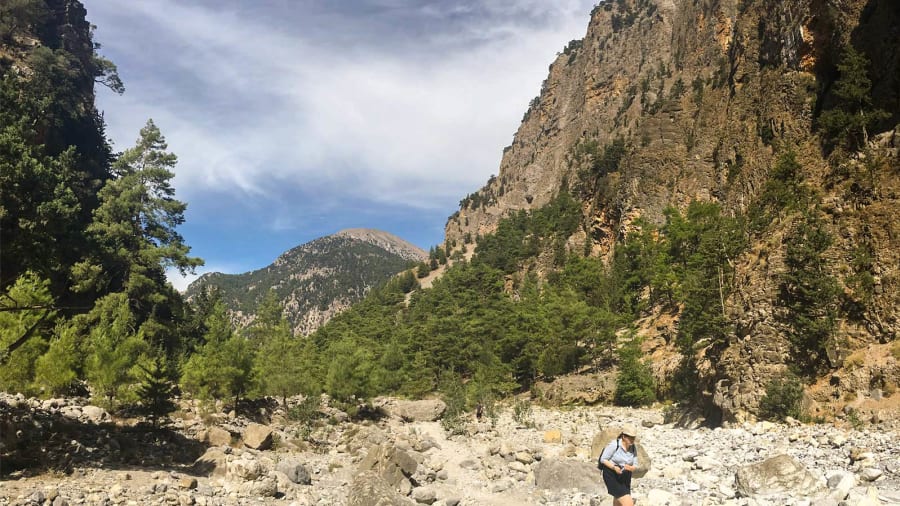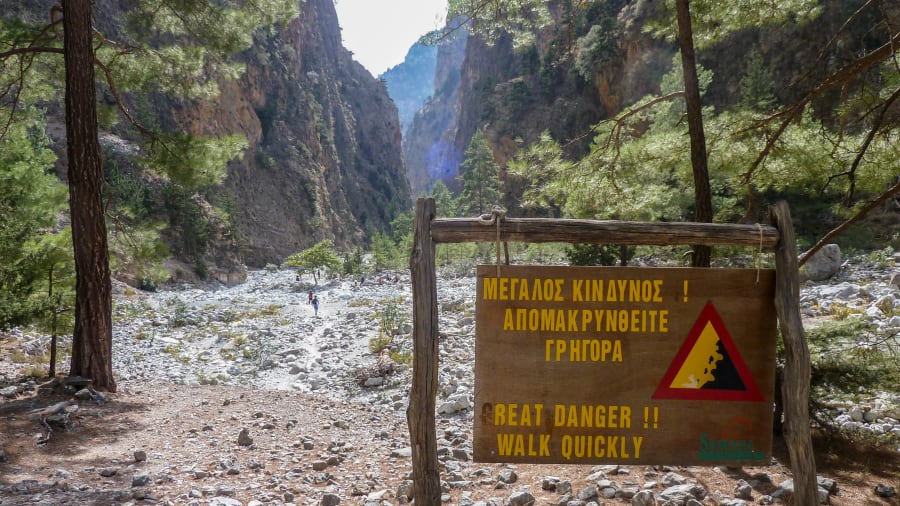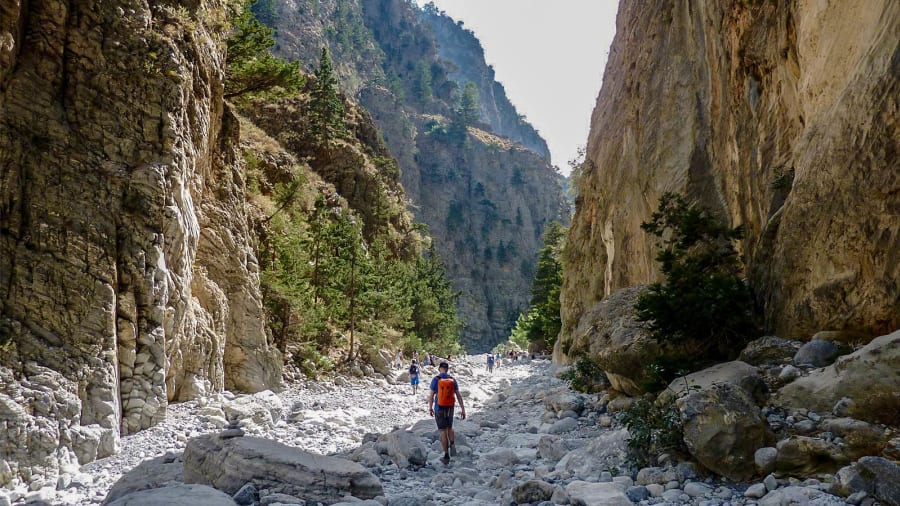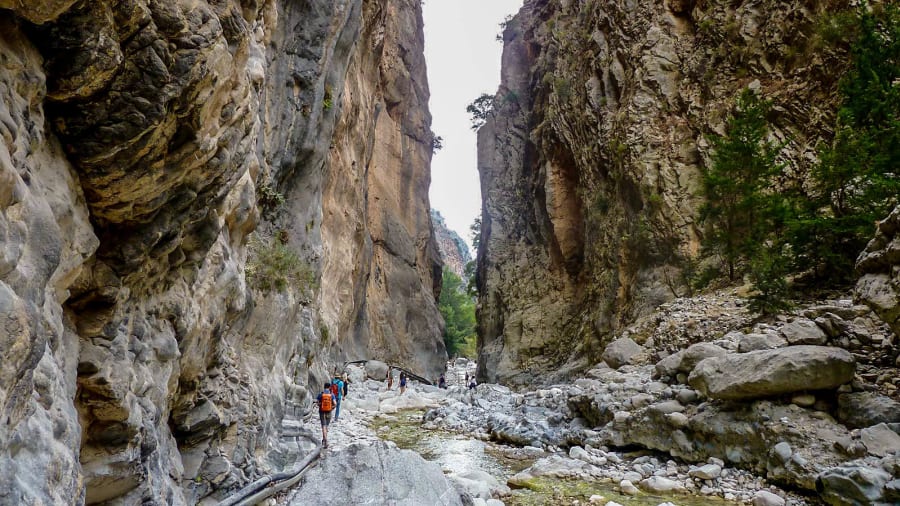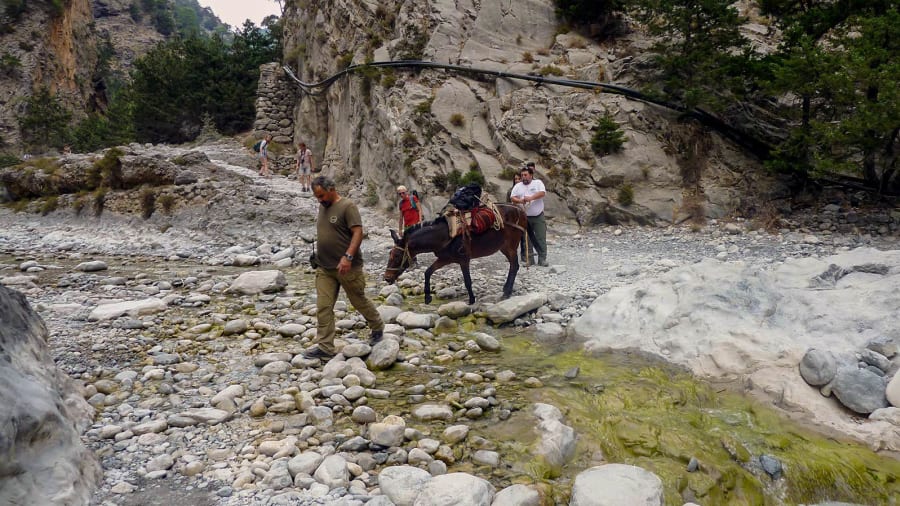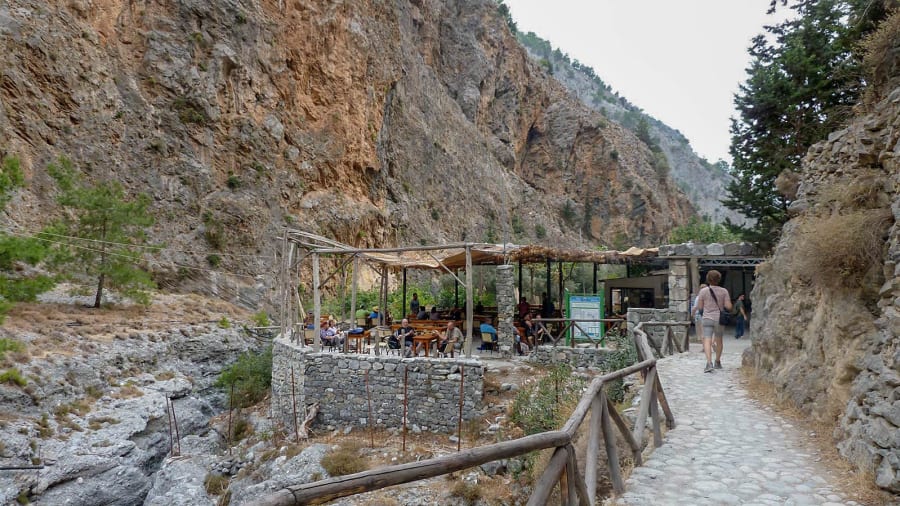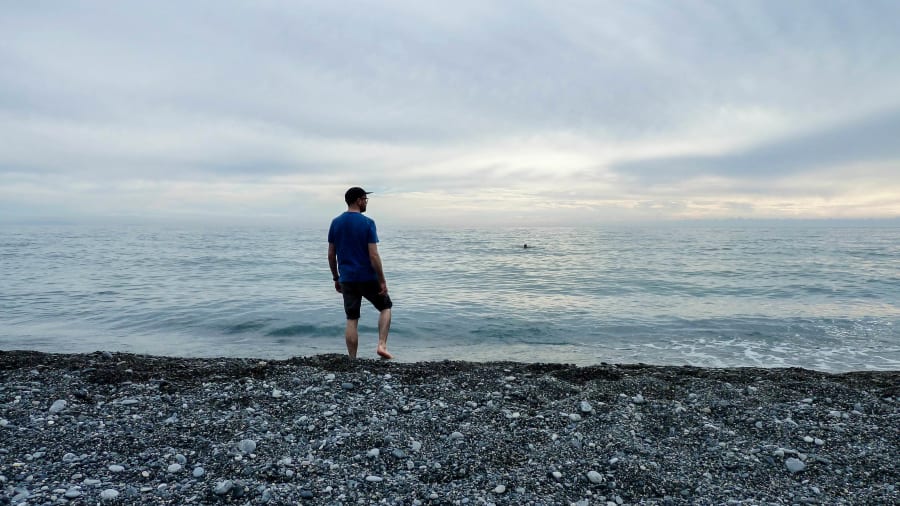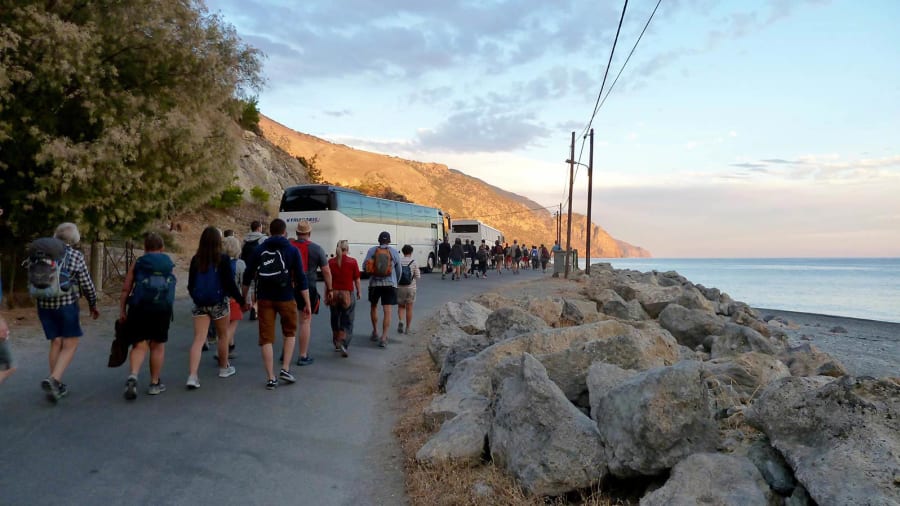Crete’s Samaria Gorge reopens to visitors
Maureen O’Hare, CNN • Updated 10th May 2018
FacebookTwitterEmail
1/16
Samaria Gorge: Stretching over 16 kilometers, Crete’s Samaria Gorge is one of the largest in Europe. Closed in the winter, it typically reopens in May.
Matt James
(CNN) — A thunderbolt from Zeus couldn’t split the Earth with greater force.
The limestone peaks of Crete’s White Mountains are slashed with dozens of gorges, but the mightiest of all is Samaria.
It’s the longest gorge in Greece and one of the largest in Europe — and it reopened for the 2018 season at the start of May.
This is Crete condensed: A 16-kilometer downhill trek descending 1,230 meters from the island’s rocky crests to the teal-blue waters of the Libyan Sea. It’s best tackled with an early start as this is a hike that takes the best part of the day.
Path of no return
A series of hairpin bends lead up to Xyloskalo, the entrance to Samaria National Park, where the jangling bells of mountain goats ring clear through the morning air.
Overhead, the pale, austere peak of Gingilos — known as Rotten Mountain and home to the equally ominous Devil’s Cave — pierces the sky’s blue.
Below, a simple staircase — first built in the Ottoman era — zigzags its way down the precipice, disappearing into dark green cypress forest hundreds of feet below.
Uneven stones wait to catch the unwary, while dusty white tree roots loop underfoot like petrified snakes.
Once inside the gorge, if you’re hit by sunstroke, ankle injury or pure fatigue and can’t walk out, the only way back is by mule.
Related content
Can wine help save Greece’s Santorini from too much tourism?
900 species of plants
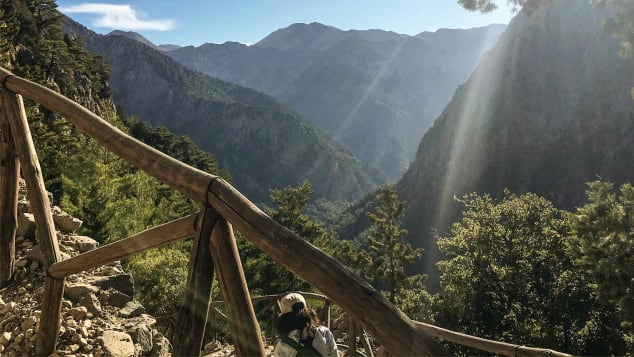
The steepest part of the trek is at the beginning.
Matt James
The first couple of kilometers are the steepest. Cypress gives way to pine, and the golden leaves of maple and oak.
May is the best time to visit the gorge. That’s when irises and white peony are in bloom, sage and chamomile scent the air, and the new generation of Cretan wild goats take their first steps under the watchful eyes of their parents.
Yellow-painted kilometer markers encourage hikers on their way, fresh achievements unlocked as they make their way from forest shade to stream-side path to glinting sunlit rocks.
Visitors are forbidden from straying from the official path. There are regular rest stops where you can eat your pre-packed picnic or fill up water bottles from fresh mountain springs.
Ravine of the resistance
Stop No. 7 is Samaria village, abandoned in 1962. At an altitude of 1,000 meters altitude and surrounded by the forested walls of the ravine, even in the height of summer it only gets a few hours of daylight.
In the village center there’s an open area known as “magazaki” (little shop), where inhabitants would gather to hear news of the outside world from the rare visitor, hunter or rambler who passed through.
There’s been a human presence in the gorge since prehistoric times. Here lie Byzantine temples, Christian chapels, Venetian fortresses and World War II shelters. Its isolation and inaccessibility has long made it a hideout for rebels and revolutionaries.
We meet the director of the gorge coming back up, making the ascent to the park entrance. He points out the hut next to us, a former resistance outpost in World War II.
Related content
Sense of the sublime
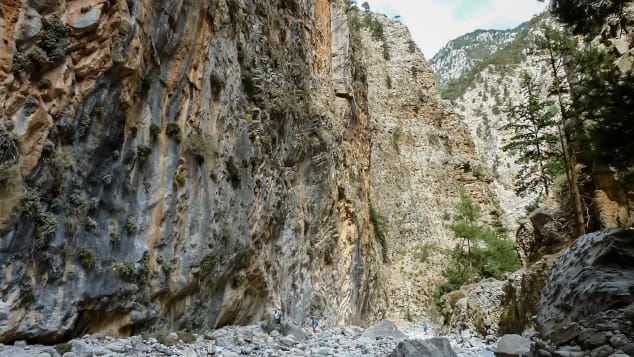
Hikers are dwarfed by the ravine walls towering above.
Maureen O’Hare/CNN
At the height of summer, as many as 2,000 visitors may pass through the gorge in a day. Even so, our fellow hikers threading their way along the path are but tiny specks lost in a monumental landscape.
The ravine walls stretch hundreds of meters above, their wavy horizontal lines of umber, silver and cream — distinctive as thumbprints — tell a tale of thousands of years of geological history.
This sense of the sublime is at its peak at the sideroportes, or “iron gates” — towering vertical rocks where the passage between is just three meters wide.
Endurance test
As we power through, covered with sweat and dust, the hike can feel like an endurance test — although we’re rewarded with views no one can see without passing this challenge.
While clambering over loose boulders big and small, the most important thing is to carefully choose your next landing spot in this ancient game of Tetris.
I find my inner mountain goat as the hike progresses, leaping nimbly from rock to rock, but it’s easy to misjudge and land with a jolt. Inexperienced hikers should prepare to feel very stiff the next day — and the day after that.
Related content
Reaching the end
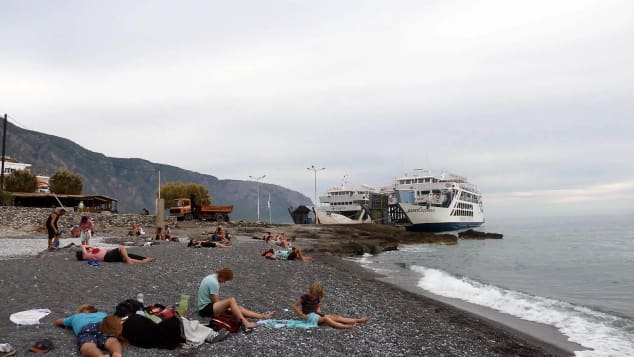
The only way to get home is by boat.
Maureen O’Hare/CNN
There are many wonderful views in the Samaria Gorge, but one of the finest is seeing the cafe directly outside the park exit, refreshing tired travelers with orange juice or beer.
A short walk onwards leads to a second cafe where, for two euros, a minibus takes you the kilometer or so to the seaside village of Agia Roumeli, although completists might prefer to keep walking.
The village has plenty of eateries, souvenir shops and accommodation options (from 20 euros a night), but the real draw is the beach.
Here, blue water washes in over smooth charcoal-gray pebbles — a soothing massage for tired, bruised feet. The only way out of here is by boat, with sailings to Sougia and Paleochora.
No matter what time you finish your hike, you’ll be going home on the 5.30 p.m. sailing — or waiting for the 8.30 a.m. or the 11.30 a.m. the next day.
What to know
• The only way to visit the gorge is by public bus or traveling with a tour group. It’s not possible to travel by car because the only way back is to do the hike a second time.
• Arrive at the gorge entrance before 9 a.m. The hike will take between five and seven hours and you will need to complete it in daylight, and before the last sailing. Hold on to your five-euro entrance ticket, as you’ll be asked for it at the exit.
• Bear in mind that the public bus to Chania takes about two hours, so even if you finish your walk at 2 p.m., you won’t be back in Chania until nearly 9 p.m. While lots of people do it as a day trip, the park itself recommends that you overnight nearby.
• Pack sunscreen and snacks and a water bottle for filling up at rest stops. Wear sturdy walking shoes, ideally with ankle support, and a hat for those times when you’re walking in direct sun.
Samaria National Park; open May 1 to October 15, weather permitting. Check dates and times before travel.
See all the article here

